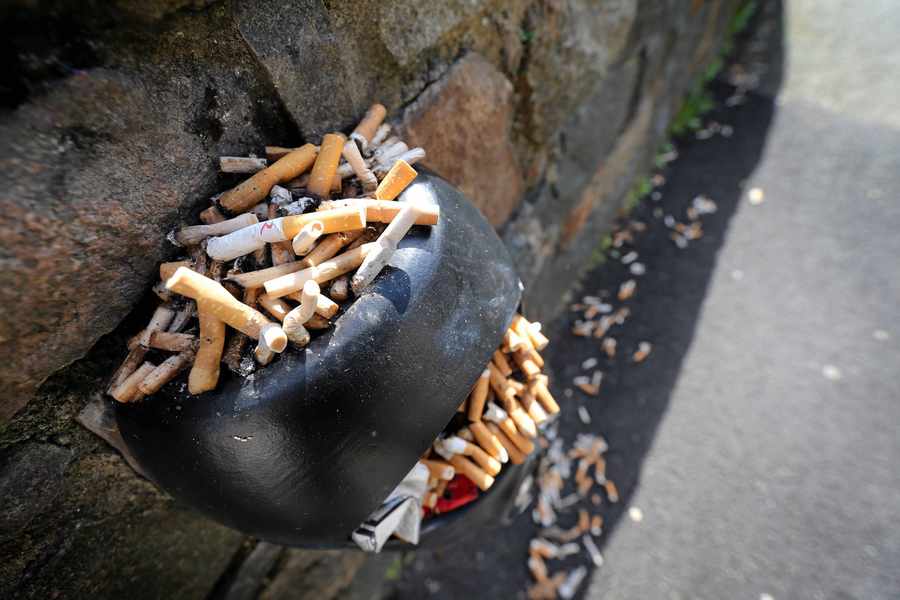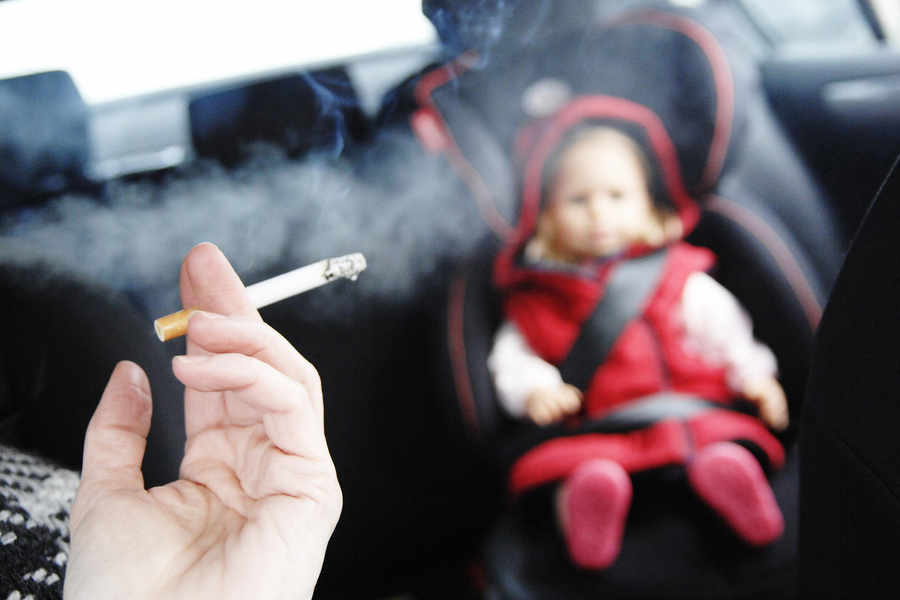- Less young people in Jersey smoking and drinking than before
- See survey results and how they compare to previous years
- Number of Islanders smoking remains unchanged overall
DRINKING and smoking rates among young Islanders have dropped significantly in the last four years, a new report has revealed.
The Young People’s Health Survey, which will be published in full next week, was carried out among Jersey children aged between ten and 15 last year.
Ahead of its publication, the Health Department has released figures from the survey which show that there has been a downward trend in the uptake of drinking and smoking by youngsters.
The statistics show that 52 per cent of 12 to 13-year-olds and 20 per cent of 14 to 15-year-olds report never having tried alcohol.
This compares to 30 per cent of 12 to 13-year-olds and nine per cent of 14 to 15-year-olds in 2010.
And in 1998, 54 per cent of 14 to 15-year-olds had drunk alcohol in the seven days before completing the survey. This decreased to 16 per cent last year.
Smoking rates have also decreased among Island children with the number of 14 to 15-year-olds smoking regularly or occasionally dropping from 35 per cent in 2002 to 12 per cent in 2014.
Martin Knight, head of health improvement for Public Health, said the figures showed ‘promise’ that Jersey’s population would be healthier in the future, adding that the ‘health behaviours and lifestyles we develop during our teenage years shape how we behave as adults’.
Mr Knight said: ‘On the one hand, drinking in our adult population is higher than the average in England, the UK and Europe.
‘But we are seeing young people shifting away from that and hopefully we will see a reduction in our significant rates of liver disease in the future.’
Mr Knight said there was not one reason to explain the changes but said that educational programmes which have been rolled out in the last three years within the Island’s schools as well as by the youth service had played a role.
One of these programmes includes the Assist programme where a number of pupils in Year eight are trained to understand the issues around tobacco which they then share with their peers.
- The number of 12 to 13-year-olds who have never tried alcohol: Up from 30% in 2010 to 52%
- The number of 14 to 15-year-olds who have never tried alcohol: Up from 9% in 2010 to 20%
- The number of 14 to 15-year-olds who had drunk alcohol in the seven days before completing the survey: Down from 54% in 1998 to 16%
- The number of 14 to 15-year-olds smoking regularly or occasionally: Down from 35% in 2002 to 12%
The Young People’s Health Survey was carried out in 40 Island schools with pupils in Years six, eight and ten answering the questions. In total, 2,675 pupils responded representing 86 per cent of all young people of these ages in Jersey.
Although the survey relied upon young people self-reporting their drinking and smoking habits, Mr Knight said that he was ‘confident’ that due to the high response rate and the fact that the questions asked were ‘tried and tested’ by statisticians, that the results were reliable.
Dr Susan Turnbull, Jersey’s Medical Officer of Health, said that the work co-ordinated by the Jersey Alcohol and Tobacco Strategies has helped to drive down the number of young people drinking and smoking.
She said: ‘It is difficult to point to one thing that supports a change in health behaviour.
‘However, the breadth of actions being supported across government departments on both tobacco and alcohol will have played a significant role in these very positive changes in our Island’s young people.’
It comes after figures from the Jersey Annual Social Survey show that the number of adult Islanders who smoke daily has remained almost unchanged for the past four years.
Figures show that 16 per cent of adults smoke every day – one per cent more than in 2010.

IN November it was revealed that the number of Islanders who smoke daily has remained almost unchanged for at least the last four years – despite the introduction of the smoking ban and the launch of several high-profile campaigns.
Figures contained in the 2014 Jersey Annual Social Survey showed that 16 per cent of Islanders smoke every day – one per cent more than in 2010. And daily smokers get through an average of 13 cigarettes per day – similar to 2008, when the average was 14. Meanwhile, six per cent of Islanders admitted that although they did not smoke every day they did occasionally smoke – the same percentage as in both 2012 and 2013 and slightly lower than in 2010, when eight per cent said that they occasionally lit up.
The figures have remained static despite the introduction of the smoking ban in January 2007, several high-profile campaigns and the fact that smoking in cars containing children under 18 is to be outlawed.

- Last July, the States approved a change to the law to make it illegal to smoke in cars carrying under-18s.
- Members were almost unanimous in their approval of the then Health Minister Anne Prykes amendment to Jerseys Draft Restriction on Smoking Law.
- The amendment called for a ban on smoking in cars carrying people aged under 18 and was approved by 42 votes to four.
- Senator Sarah Ferguson and Deputies Tracey Vallois, Gerard Baudains and Mike Higgins voted against the move.
NO ONE these days can be in any doubt that smoking is bad – an anti-social habit which is very damaging to health.
A ban on tobacco advertising was followed by tighter restrictions on where and to whom cigarettes can be sold, and where smokers can light up. Regulatory changes have been complemented by awareness-raising and education programmes, especially in schools.
And yet there was little evidence that a wave of regulations had actually dented addiction rates. Late last year, it was reported that there had not been any significant reduction in the number of people smoking.
Today’s front-page news is vindication of the hard work of those at Health who have pushed the no-smoking agenda in the face of criticism that they were the soldiers of an oppressive nanny state.
Those already hooked on tobacco products might be struggling to break the habit, but if these latest figures are evidence that fewer people are taking it up, this is very positive news.
The data also reveals that fewer younger people are experimenting with alcohol at an early age.
Prevention is better than cure. If these children who have turned their backs on unhealthy habits carry this pattern of behaviour into adulthood, they will be happier and this Island will be both healthier and less burdened by the cost of irresponsible lifestyles.
There is more that can be done to further reduce alcohol and tobacco consumption – through regulation and education.
Dr Susan Turnbull, the Medical Officer of Health, and her team are taking this Island in the right direction.
It is now time for older members of the community to learn from a younger generation, before it is too late.
Role model for Jersey

- Nearly 3,000 people took part in the consultation, including 469 smokers ?
- 87 per cent said that the States should stop children being subjected to the dangers of second-hand smoke
- More than three-quarters said that they would support legislation banning smoking in cars carrying children
- More than 80 per cent of people backed calls to stop people lighting up in playgrounds






